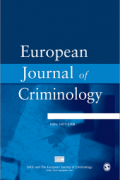The aim of this text is to describe and compare the residential segregation of foreigners in Prague and Central Bohemian region in years 2012–2018. The distribution of foreigners is measured using a new method of individualized scalable neighbourhoods. This method allows to compare the distribution of minority and majority population on multiple scales and does not depend on the statistical-administrative division of the territory.
Topic: housing, urban and rural studies, methodology, migration and mobility, public administration
Příspěvek se zaměřuje na stěhování a rezidenční mobilitu cizinců v Praze a Středočeském kraji, kde se soustředí značná část cizinecké populace Česka. Na základě kombinace dvou zdrojů dat ukazuje, že vzhledem ke specifickým prostorovým vzorcům pobytu a pohybu mají cizinci nezanedbatelnou roli v procesu utváření sociálně-prostorové struktury regionu.
Topic: housing, urban and rural studies, methodology, migration and mobility, public administration
Topic: kultura
Topic: kultura
Topic: religion and religiosity
This article offers insights into eating practices, conceptualising and making of ‘good’ food by people living with chronic disease. Based on ethnographic research focussing on people with Inflammatory Bowel Disease (Crohn’s disease, ulcerative colitis and undefined IBD) in the Czech Republic, we explore what it would mean to conceptualise disability from the non-normative gut.
Topic: health
Topic: gender, internet, kultura, media
The article analyses the proliferation of narratives about Covid‐19 as an orchestrated political event among female lifestyleinfluencers on Czech Instagram. As the Covid‐19 pandemic turned even the most basic everyday activities into politicallyloaded questions, the boundaries between lifestyle, domestic, and political content posted by influencers became increas‐
Topic: gender, internet, politics (and political attitudes)
Authenticity has become a buzzword for our times. Much of the travel industry is built around the provision of ‘authentic’ experiences, global brands fight to be seen as ‘authentic’ and social media platforms are awash with arguments about the authenticity of this post or that vlogger. But what do we mean by authenticity? And why have these debates grown so dramatically in the last two decades?
Topic: gender, kultura, media
Despite a long and rich history of fear of crime research, studies which focus on the importance of local specifics are rather limited. This study fills this gap by analyzing fear of crime—measured as concerns about crime and feeling of safety—among residents of disadvantaged neighborhoods.
Topic: crime
The main objective of this study is to examine interest in the implementation of five restorative justice programs as reported by 225 employes of the Prison Service of the Czech Republic and to identify the factors that underpin such interest. The results show that perceived usefulness and familiarity with the program are crucial factors that influence the respondent's interest in program implementation.
Topic: crime
This article reports on a new empirical study evaluating crime concentration at places in a postsocialist city. We use principles of the law of crime concentration at places and the Cambridge Crime Harm Index to measure crime count and crime harm concentration at the level of street segments. The research found differences between crime concentration in a post-socialist city and crime concentration reported by recent studies from US or UK cities.
Topic: trust/social cohesion, crime, urban and rural studies, social inequalities, public administration
Christianity has lost its salience, but customs and traditions maintained their importance in forming national identity in Europe. Using the ISSP National Identity 2003 and 2013 data from 17 European countries, this article tests how the salience of Christianity and sharing of national customs and traditions varies according to the share of Muslim and immigrant population, and whether the association changed across time.
Topic: identity, kultura, religion and religiosity
Topic: history of sociology
The purpose of this document is to provide inputs and contribute to reflection for decision-making in the field of equality in employment between men and women.
Topic: economics, gender
Topic: gender, wages and incomes
Drawing upon ethnographic research on human living and producing with fungi, and Haraway’s theorization of sympoiesis and the model ecosystems of mycorrhizae developed in current mycological research, we offer a concept of sympoietic growth.
Topic: economics, sociology of science, životní prostředí
The upswing in finance in recent decades has led to rising inequality, but do downswings in finance lead to a symmetric decline in inequality? We analyze the asymmetry of the effect of ups and downs in finance, and the effect of increased capital requirements and the bonus cap on national earnings inequality. We use administrative employer–employee-linked data from 1990 to 2019 for 12 countries and data from bank reports, from 2009 to 2017 in 13 European countries.
Topic: economics, elites, gender, wages and incomes, social inequalities
Genderově podmíněné násilí včetně sexuálního obtěžování jsou závažnými problémy, ke kterým dochází i ve vysokoškolském prostředí. Genderově podmíněné násilí má vážné dopady na studijní a pracovní výsledky osob, které jej zažívají, ale i na osoby, které jsou tomuto jednání vystavovány z pozice svědků.
Topic: gender, social inequalities, sociology of science, education
The article addresses the influence of parenthood on the gender pay gap (GPG). The linked employer − employee data available that is suitable for a detailed GPG analysis, does not include parenthood in Czechia. It is thus possible to examine the relationship between the GPG and parenthood via this data only indirectly through the use of data on age.
Topic: gender, wages and incomes, care, work, parenting, social inequalities








Newsletter
Facebook
Twitter
Tweets by SociologickyNewsletter